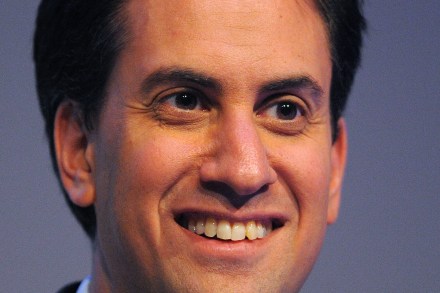Miliband finds his niche
I spent this morning with Ed Miliband on a trip to a factory in Sunderland. Miliband was visiting the Liebherr plant there, which manufactures cranes. The centerpiece of the visit was a Q&A with the workforce. Now, a factory in the North East is not the toughest venue for a Labour leader to play. But Miliband appeared far more comfortable in this setting than he does when giving a traditional speech from behind a podium. Unlike Miliband’s Q&A at Labour conference, the questions were not softballs or traditional left-wing fare. One set of three questions were: why don’t we close the borders, bring back national service and do more












